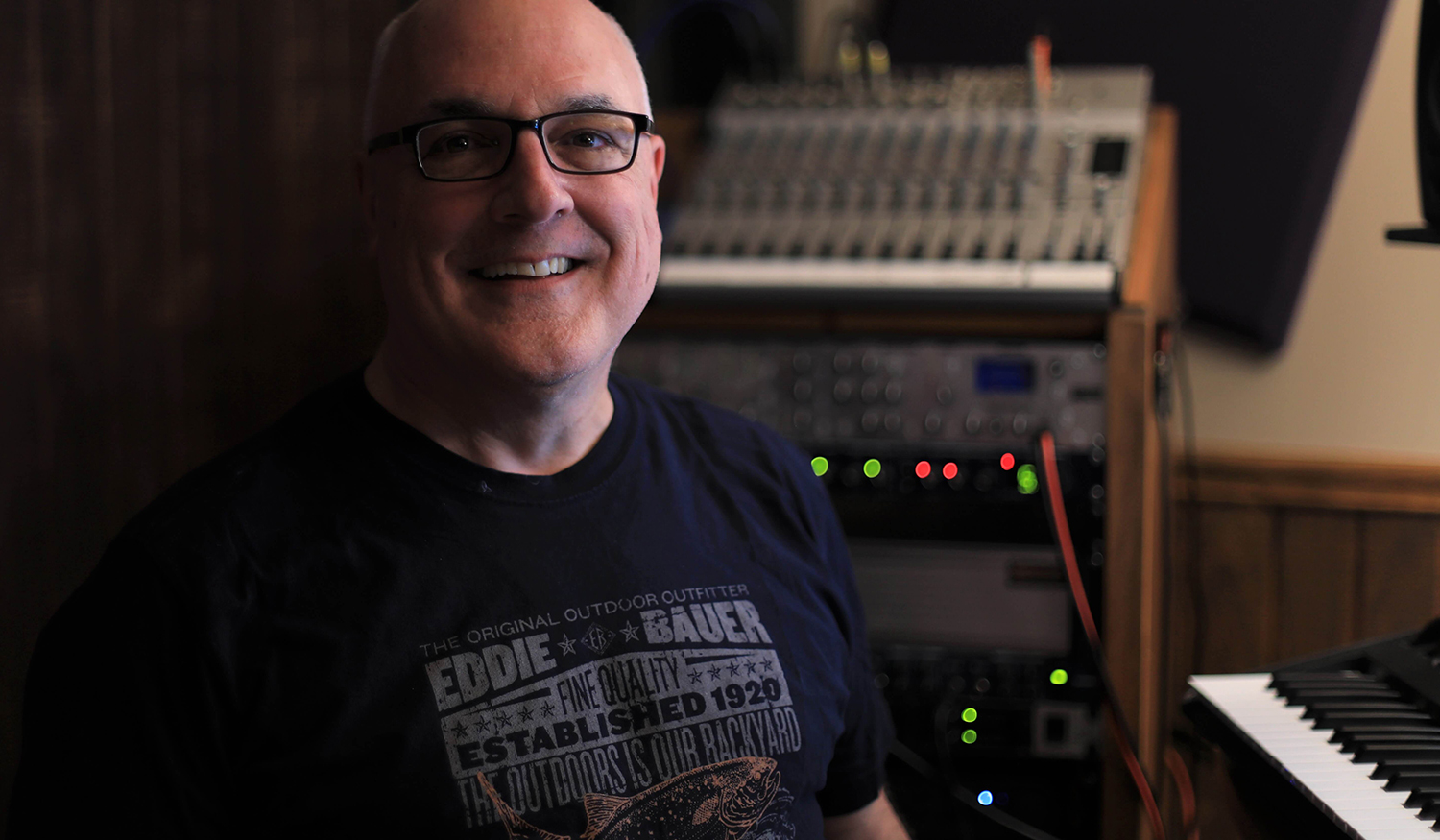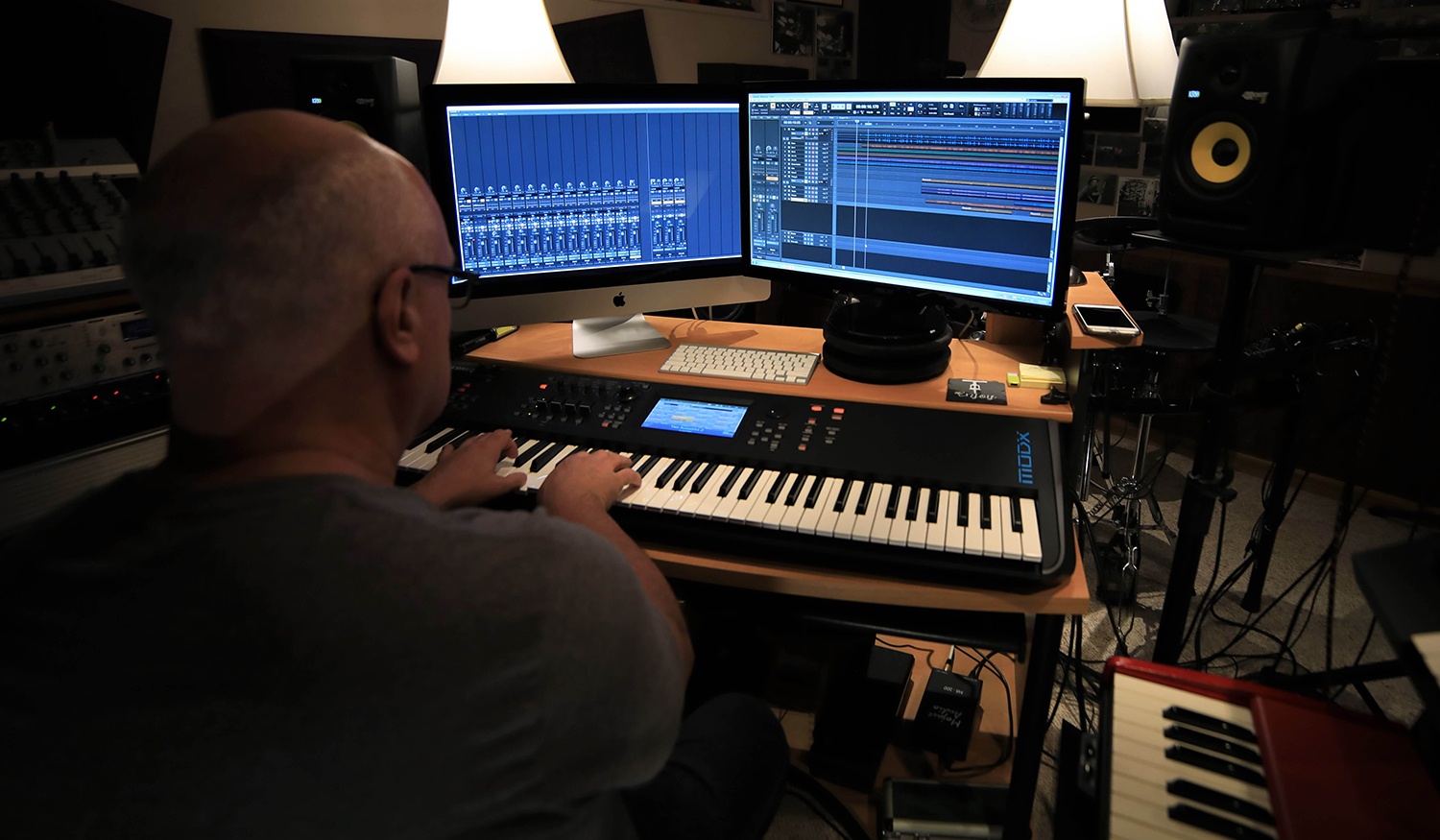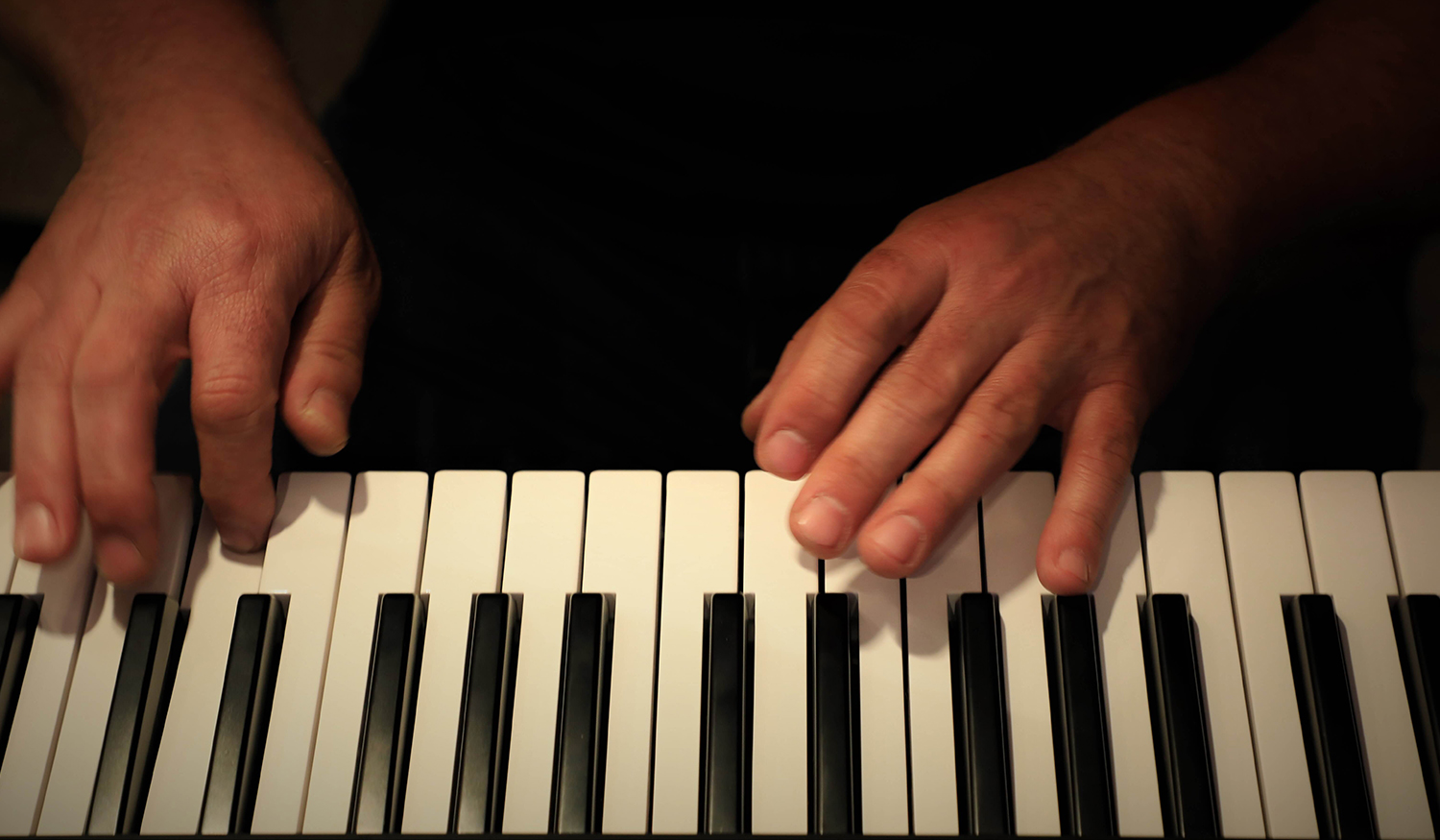I was born and raised in Massachusetts and started playing trombone professionally at age 11. Prior to that, I was fascinated with the accordion, I was self-taught on the piano, played clarinet, played bass guitar. I just literally loved the music. On a personal note, I had a stutter, so speaking was not my forte, but music was. I remember sitting in my room night after night playing the trombone to bands like Red Nichols and the Five Pennies — seems like I had an early talent for literally playing by ear any kind of music, including classical. I would actually record myself playing on top of the band using my reel-to-reel tape recorder. Of course, things have gotten so much better with digital music now than back in the 60’s.
I started playing in 1968 with the Tubby Gareri Band, a polka band. I remember, my dad came home from a wedding — we were all sitting watching TV — and my dad said, “get dressed and get your trombone.” And I started crying, because he wanted me to go and to sit in with this band at the wedding. We got to the wedding and there had to be 500 people there. I sat in with the band and I got hired. At age 11, believe it or not, I was playing two nights a weekend, $35 a night. I thought I was going to be a millionaire, and kind of back then, 1968, $35 was a lot of money. My parents would never buy me a piano, so the polka band enabled me to buy my own instruments. At age 11 making that kind of money and having a bank account was pretty cool. It taught me early on that if I worked really hard, I could achieve whatever I dreamed of. And I have.
At age 14 I had my own band, called AMF, a seven-piece band. We played Chicago, Earth Wind & Fire, Average White Band, Loggins and Messina. If we could play it, we did. We all played multiple instruments. We had great, great opportunities, did a lot of gigs all around New England. I was the leader and writer, although we all collaborated together. AMF was a great band and it had its opportunities. I remember I was 15 or 16 and I got a call from NYC from the agency for Bobbie Rydell wanted our band to back him up as his band, throughout the summer of 1972 or 1973. I remember the meeting with the bandmembers that I had and telling them about the opportunity, and they declined to take it, because they liked to play the local nightclubs and dances. We had a band reunion about five years ago, and some of the guys apologized for not taking advantage of the opportunity. That experience early on taught me at a young age that people are more afraid of success than failure. Even though I didn’t understand it and didn’t like it, it obviously turned out well for me.
I did a lot of music, and then in 1971 my music teachers convinced me to go to Boston University, and I did, and I got accepted. It was probably the hardest thing I ever did. When you go to a private music school you have to audition, and I had to audition for the lead chairs of the Boston Symphony. And being a self-taught trombonist, it was pretty crazy. I did have a few notable teachers that I have to call out, just great people. George Robinson who played with Dorsey, Jerry Seeco who played with everyone, Paul Gay who was a symphonic trombonist. I studied in college with some amazing people — Ron Barron, lead chair of the Boston Symphony, Norm Bolter also with the Boston Symphony, great artists. But my mentor in college was Roger Voisin, notably the best trumpet player to ever live. Roger and I became really good friends. I played the trombone four years in the Boston University Symphony, the Wind Ensemble, and the Harvard Symphony. I credit that not just to Roger, I credit it to him pushing me, because he did. He made me follow his command, and I did. Maybe that was an early indicator that I liked to learn from people who have already accomplished far more than I was likely to ever accomplish.
Throughout my career at Boston University, I played constantly. I played in all different bands, keyboard, bass guitar and trombone, my three axes, although I play other stuff. Of course with the recording business everything is digital, and I have had to learn to be a really good keyboard player.
I dreamed about traveling the country and I got a call a week before graduating from a band in NYC, Carmen Cannavo Show Band, which was an offshoot of the Louis Prima Band. I auditioned and I got the job to play trombone, keyboards, sing, write and arrange. And so, for one year I traveled the Eastern United States from Detroit to Miami. It was a dream come true and was actually the greatest thing that ever happened to me, because by the third month I realized I didn’t like it at all. I realized that I was a home-body, but also that it took away my passion for music and creativity. When you’re play seven nights a week you have to do exactly what you’re told, play the notes as they’re written. And that becomes a very monotonous experience. I met my wife when I was traveling, we got married, moved to Franklin, Mass. and eventually ended up in Warren, Ohio.
While we were in Franklin, I did get the band opportunity of my life. Jerry Seeco who was my mentor as a young boy, hired me to play in the Jerry Seeco Band, which was basically the Berkeley School of Music faculty band. For almost a year I played with the band and made a ton of money and worked my tail off. I remember the month of May 1981, my daughter Tiffany was going to be born in two months, I was teaching full-time school, and in that one month we played 21 nights with the band. I remember sitting around one night with the band mates, seven members, all of the guys were very accomplished, all recording artists, all teachers at Berkeley. And I was 24 at that time, and I asked the guys if they could do their life again, if they had the chance to change their life, would they have stayed in music full-time or would they have taken on a business job and played music on the side for passion. So, we went around the circle, and to a person they said they would have taken a business opportunity and played music on the side.
So about two months after that I left the band, and moved to Ohio, and I stopped playing full time officially. I still play for fun, but I don’t want to leave my family at home when I go out to play. So, in 1993 I stopped playing gigs and started my recording studio business, which really is my passion. Since 1993, I’ve done more than 2,400 projects — tracks, short films, original music for different recording artists who aren’t famous yet, but some will be, I think. And that’s music to me. It’s something that drives my spirit. It’s a God-given opportunity to have the ability to enjoy something so much. But I did find out that I did not want to do music for a living because it steals my creative juices.




